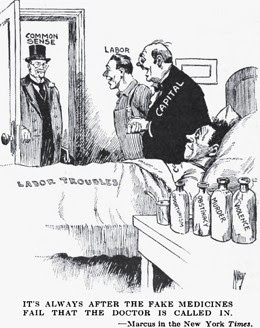Summary:
Tom Palley reply to response about his paper on Keynes lack of understanding of class conflict. In many ways, this is how Tom discusses Keynes lack of understanding of old classical political economy. Tom is correct in pointing out that:"Kalecki (1933 [1971]) began the process of incorporating conflict into the Keynesian paradigm, but there is much more to be done regarding recognizing conflicts’ implications for economic theory and recognizing the multiple fora in which it appears."Of course, Kalecki was building on Marx and classical political economy. Read the full reply here.
Topics:
Matias Vernengo considers the following as important: Keynes, Neoliberalism, Palley
This could be interesting, too:
Tom Palley reply to response about his paper on Keynes lack of understanding of class conflict. In many ways, this is how Tom discusses Keynes lack of understanding of old classical political economy. Tom is correct in pointing out that:Tom Palley reply to response about his paper on Keynes lack of understanding of class conflict. In many ways, this is how Tom discusses Keynes lack of understanding of old classical political economy. Tom is correct in pointing out that:"Kalecki (1933 [1971]) began the process of incorporating conflict into the Keynesian paradigm, but there is much more to be done regarding recognizing conflicts’ implications for economic theory and recognizing the multiple fora in which it appears."Of course, Kalecki was building on Marx and classical political economy. Read the full reply here.
Topics:
Matias Vernengo considers the following as important: Keynes, Neoliberalism, Palley
This could be interesting, too:
Matias Vernengo writes Paul Davidson (1930-2024) and Post Keynesian Economics
Lars Pålsson Syll writes The Road Not Taken
Matias Vernengo writes Podcast with about the never ending crisis in Argentina
Matias Vernengo writes Trumponomics vs. Bidenomics: The good, the bad and the stupid
"Kalecki (1933 [1971]) began the process of incorporating conflict into the Keynesian paradigm, but there is much more to be done regarding recognizing conflicts’ implications for economic theory and recognizing the multiple fora in which it appears."
Of course, Kalecki was building on Marx and classical political economy. Read the full reply here.

